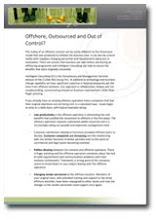Those of us with our fingers on the pulse of the labour market are getting used to hearing about how well the Netherlands are doing. They have reported strong growth for the past 18 months, now pay their temporary workers the same rate as equivalent permanent workers and consistently rank as one of the best places in the world to live.
It’s this kind of forward thinking and willingness to adapt to the changing values of workers in the 21st Century that sets the Dutch labour market apart. Jürrien Koops, Director of ABU, observed that “the social partners have taken a new step in creating a good balance between flexibility and security.” Much of this may be down to the Dutch attitude to a work/life balance, which can be encompassed in one word:
Gezelligheid – time spent with loved ones, a warm feeling of togetherness
More than half of Dutch workers are part-time, allowing people to spend more time with friends and family. According to a study from Huffington Post, the average number of hours per week the Dutch devote to leisure and personal care is 16.06, 75% of mothers are employed and just 0.01% work ‘very long hours’. On top of this, exercise, which as we know produces ‘happiness-inducing’ endorphins, is enjoyed by the majority of the population at least four times a week, simply because they have the time to do it. Perhaps the Dutch are able to achieve these numbers not by balancing work and life, but by prioritising life a little more than work, just enough to fuel both a thriving labour market and the nation’s wellness.
Though it seems incredible, having comparatively few full-time workers is doing the labour market no harm; 18% more hours were worked by temporary workers between 26th April and 23rd May 2015, compared with the same time last year (according to the Dutch Federation of Employment Agencies). The largest growth was in the technical sectors, in which 28% more hours were worked and sales rose by 26%.
The UK could have a lot to learn from this approach. Just 6% of job advertisements in the UK mention flexible working options, despite 14.1 million UK workers wanting to work flexibly, a study by Timewise has found. This means that talent pools for some employers are significantly dwindling as they neglect 46% of UK workforce, despite the skills shortage we are facing. Karen Mattison (CEO of Timewise) said businesses were “missing out” by failing to realise how important flexibility is to job seekers; “this often results in the best talent having to trade down and take jobs way beneath their level of skill and ability.”
Lynn Rattigan (COO of EY, UK and Ireland) observed that “there is a growing pool of talent, not just parents, who are looking for flexible roles that allow them to balance their professional and personal ambitions. One of the major challenges facing most businesses across the country is attracting and retaining the right people. Yet many organisations are restricting their search by applying the traditional concept of a 9-5 working week.”
We hope to continue to see the Netherlands setting a shining example for workers, leaders and companies. It seems the key to a happy, engaged and productive workforce is giving workers room to wisely spend their most valuable asset; time.







No comments:
Post a Comment